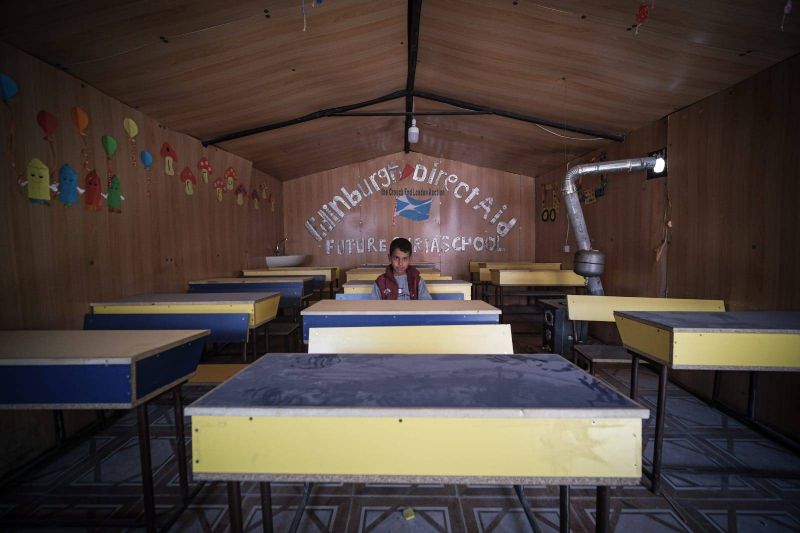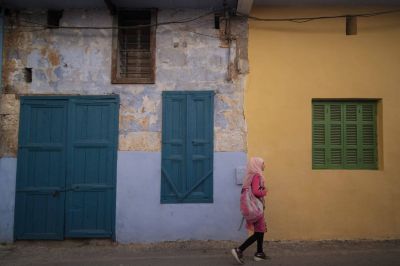
A student poses for a picture at an informal school in a refugee camp in North Lebanon. (Credit: João Sousa/L’Orient Today/File photo)
BEIRUT — Lebanon will soon enter its fifth year of economic and financial crisis, with annual inflation in the triple digits for a third consecutive year, according to the latest government-issued statistics.
Those increases were driven in large part by education prices, which rose by nearly 600 percent since this time last year.
After a small increase of 1.4 percent in September 2023, Lebanon’s monthly Consumer Price Index (CPI) went up to 17.2 percent in October 2023, according to the latest data by the Central Administration of Statistics (CAS). This marks a surge in Lebanon's monthly inflation rate, and is mainly driven by increased education costs. On a yearly level, the CPI recorded a change of 215.4 percent, marking a jump from a 208.5 percent increase in September 2023.
While the parallel market exchange rate remains stagnant at just below LL90,000 to the dollar, the economic and financial situation remains unstable, four years after the 2019 economic collapse. The year 2023 saw payments for goods and services rapidly shift toward pricing in US dollars amid an overall “redollarization” of the economy.
Diving deeper into the monthly changes shared by CAS, education prices significantly increased, by 580.9 percent compared to only 0.1 percent in September. The increase is due to the fact that private schools now charge tuition fees partly or fully in dollars. Even public schools, which charge in Lebanese lira, increased their tuition fees.
Recreation, amusement and “culture” prices increased by 17 percent month-on-month, while water, electricity and gas prices increased by 10 percent.
New rent prices also went up, with a two percent monthly increase compared to a 0.9 percent increase in September.
A slight deflation of 0.1 percent was noted for telecommunication prices, as well as a 0.3 percent decrease in prices across the health sector.
On a yearly level, education prices increased by 595.2 percent, new rent prices went up by 411.4 percent, water, electricity and gas prices increased by 151.8 percent, and alcohol and tobacco prices increased by 249.3 percent. Food and non-alcoholic beverages rose by 218.1 percent.
Prices increased somewhat unevenly throughout Lebanon, with Mount Lebanon recording the highest monthly increase of 22.3 percent, followed by Beirut with an increase of 16.2 percent, North Lebanon with 13.9 percent, the Bekaa at 12.5 percent, the South at 9.4 percent, and Nabatieh with a 9.8 percent increase.
Education prices have also increased unevenly across regions with Mount Lebanon recording an increase of 652.7 percent, while the South saw an increase of 235.2 percent.
